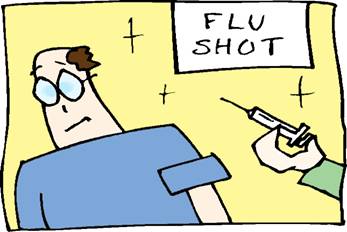December 3, 2009

Nassau County Dept. of Health Offering Free H1N1 Vaccine
Nassau County Department of Health has partnered with the North Shore-LIJ Health System and Nassau University Medical Center to provide the H1N1 (Swine Flu) vaccine at no cost to people in the Centers for Disease Control and Prevention’s priority groups.
THE VACCINE WILL BE AVAILABLE ON THESE DATES:
SATURDAY – DECEMBER 5, 2009 – 9:00AM TO 5:00PM
Nassau County Department of Health at Nassau Community College, Building P,
Physical Education Complex, East Campus, One Education Drive, Garden City 11530
SUNDAY – DECEMBER 6, 2009 – 9:00AM TO 1:00PM
North Shore-LIJ at Town of North Hempstead’s Clinton Martin Park
1650 Marcus Ave., New Hyde Park, 11040
TUESDAY – DECEMBER 8, 2009 – 6:00PM TO 10:00PM
Nassau University Medical Center’s A. Holly Patterson
Extended Care Facility Auditorium, 875 Jerusalem Ave., Uniondale, 11553
THURSDAY – DECEMBER 10, 2009 – 6:00PM TO 10:00PM
Nassau University’s Medical Center’s Auditorium
2201 Hempstead Turnpike, East Meadow, 11554
TUESDAY – DECEMBER 15, 2009 – 6:00PM TO 10:00PM
Nassau University Medical Center’s A. Holly Patterson
Extended Care Facility Auditorium, 875 Jerusalem Ave., Uniondale, 11553
TUESDAY – DECEMBER 15, 2009 – 9:00AM TO 1:00PM
North Shore-LIJ at Town of Hempstead’s Levittown Hall
201 Levittown Parkway, Hicksville, 11801
WEDNESDAY – DECEMBER 16, 2009 – 6:00PM TO 10:00PM
Nassau University’s Medical Center’s Auditorium
2201 Hempstead Turnpike, East Meadow, 11554
Appointments are not needed, and only those priority groups recommended by the CDC (listed below) will be provided with the H1N1 vaccine. Additional dates will be posted as vaccine becomes available.
For additional questions, call the Nassau County Department of Health Influenza Call Center Monday through Friday, 9 am – 4 pm at 1.888.684.4271 or visit the Health Department’s website at http://www.nassaucountyny.gov/agencies/Health/index.html
The priority groups recommended by the Centers for Disease Control and Prevention to receive the 2009 H1N1 influenza vaccine include:
Pregnant women because they are at higher risk of complications and can potentially provide protection to infants who cannot be vaccinated.
Household contacts and caregivers for children younger than 6 months of age because younger infants are at higher risk of influenza-related complications and cannot be vaccinated. Vaccination of those in close contact with infants younger than 6 months old might help protect infants by “cocooning” them from the virus.
Healthcare and emergency medical services personnel because infections among healthcare workers have been reported and this can be a potential source of infection for vulnerable patients. Also, increased absenteeism in this population could reduce healthcare system capacity.
All people from 6 months through 24 years of age.
Children from 6 months through 18 years of age because cases of 2009 H1N1 influenza have been seen in children who are in close contact with each other in school and day care settings, which increases the likelihood of disease spread.
Young adults 19 through 24 years of age because many cases of 2009 H1N1 influenza have been seen in these healthy young adults and they often live, work, and study in close proximity, and they are a frequently mobile population.
Persons aged 25 through 64 years who have health conditions associated with higher risk of medical complications from influenza.

